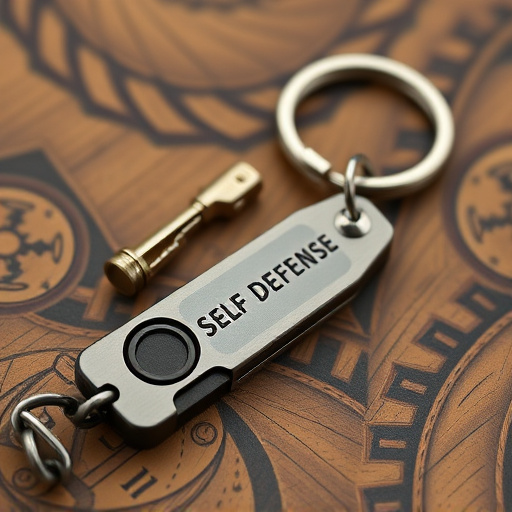Carrying defensive keychains requires understanding state-specific regulations, which vary greatly in defining "weapons" and listing exceptions. Staying updated with your state's laws is crucial for legal carry and usage. When choosing rust-proof self-defense materials, prioritize durability and corrosion resistance from high-quality metals like stainless steel or titanium to ensure longevity and reliability, especially in humid environments. Understanding these legalities empowers individuals to choose appropriate keychains while respecting state limits, safeguarding their rights, and avoiding potential legal issues.
“Uncovering the intricacies of defensive keychain legal carry guidelines is crucial for those seeking self-protection. This comprehensive guide navigates the complex landscape of state-by-state regulations, offering a detailed ‘State-by-State Overview’. We explore the importance of choosing durable and rust-proof self-defense materials, providing insights into what to consider. Additionally, our article ensures you’re compliant with local laws by delving into ‘Navigating Legalities’, empowering individuals to make informed decisions regarding self-defense keychains.”
- Understanding Defensive Keychain Legal Carry Guidelines: A State-by-State Overview
- Choosing the Right Rust Proof Self-Defense Materials: What to Consider
- Navigating Legalities: Ensuring You're Compliant with State Laws for Self-Defense Keychains
Understanding Defensive Keychain Legal Carry Guidelines: A State-by-State Overview
Navigating the legal landscape surrounding defensive keychains and self-defense materials can be a complex task, especially when considering that guidelines vary significantly from state to state. Understanding these rules is paramount for responsible carry and usage of such devices. The term “rust-proof self-defense materials” often refers to durable and reliable tools designed for personal safety, encompassing various types of keychains armed with sharp edges or other protective features.
Each state in the U.S. has its own set of regulations dictating what constitutes legal carry of these items. Some states allow certain types of defensive keychains without a permit while others demand strict adherence to concealed carry laws. For instance, some states classify these devices as “defensive weapons” and subject them to the same restrictions as firearms, including permit requirements and specific storage mandates. Staying informed about your state’s particular regulations is crucial to ensure compliance with the law and avoid any potential legal complications when exercising your right to self-defense.
Choosing the Right Rust Proof Self-Defense Materials: What to Consider
When selecting rust-proof self-defense materials for your keychain, consider factors like durability and corrosion resistance. Look for high-quality metals such as stainless steel or titanium, known for their strength against wear and tear, ensuring your keychain can withstand daily use while retaining its effectiveness.
Additionally, the material’s ability to resist rust is crucial, especially if you live in humid environments. Rust not only weakens the structure but also poses health risks when ingested. Opting for genuinely rust-proof materials guarantees a longer lifespan for your defensive tool and peace of mind knowing it will perform reliably when needed.
Navigating Legalities: Ensuring You're Compliant with State Laws for Self-Defense Keychains
Navigating Legalities: Ensuring You’re Compliant with State Laws for Self-Defense Keychains
When considering carrying a self-defense keychain, understanding and adhering to your state’s laws is paramount. Each U.S. state has its own set of regulations regarding hidden weapons, including self-defense keychains. It’s crucial to research and comprehend these laws to avoid legal repercussions. One key aspect often considered is the material used; opt for rust-proof materials that meet legal standards, ensuring your keychain remains effective without inviting scrutiny.
State legislatures have varying definitions of what constitutes a ‘self-defense weapon’ and set limits on their size, capacity, and legality in public spaces. Some states permit certain types of self-defense keychains while strictly regulating others. Being informed about these legalities safeguards your right to protect yourself and helps you make informed decisions when choosing a self-defense keychain that aligns with both your needs and the law.
When it comes to self-defense keychains, understanding the defensive keychain legal carry guidelines specific to your state is paramount. By adhering to these guidelines and choosing the right rust proof self-defense materials, you can ensure both effectiveness and legality. Remember, staying informed about your rights and responsibilities is crucial for personal safety and compliance with the law.
